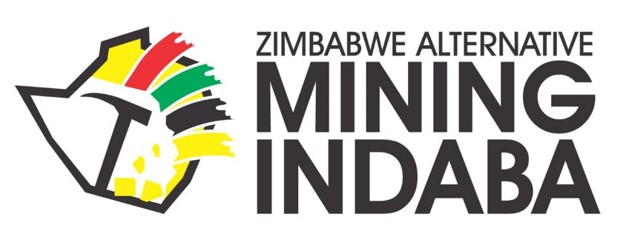Last week, private and non-governmental organizations, alongside various government departments, convened at the 13th Zimbabwe Alternative Mining Indaba (ZAMI) 2024 in Bulawayo to discuss how mining can benefit communities without causing harm, Mining Zimbabwe can report.
By Rudairo Mapuranga
Attendees included representatives from the Office of the President and Cabinet, the Ministry of State for Provincial Affairs, the Ministry of Mines and Mining Development, the Ministry of Women Affairs, Community, Small and Medium Enterprises, the Environmental Management Agency (EMA), the Zimbabwe Revenue Authority (ZIMRA), the Parliament of Zimbabwe, and a broad range of community and environmental activists, church leaders, academics, development partners, media, and civil society organizations (CSOs). Many participants also joined virtually.
The Indaba was co-hosted by the Zimbabwe Environmental Law Association (ZELA), Zimbabwe Coalition on Debt and Development (ZIMCODD), and Zimbabwe Council of Churches (ZCC), in collaboration with partners including Christian Aid, ActionAid Zimbabwe, Norwegian Church Aid, Business and Human Rights Resource Centre, Centre for Agriculture and Food Policy (CAFP), Green Governance Zimbabwe Trust, UK International Development, Oxfam, Community Technology Development Trust, African Extractivism and Green Transition, Global Witness, ACT Alliance, Terre des Hommes, Centre for Natural Resource Governance, and the Forest Service Department of Agriculture. The event ran under the theme “Energy Transition Minerals: Putting Communities First for Community Development.”
This year’s ZAMI offered a platform for diverse discussions on opportunities for a just transition in Zimbabwe’s mining sector. Key topics included the clean energy transition, public debt, inequality, mining-induced displacements, and the environmental impacts of extractive activities. Emphasis was placed on responsible mining, fair taxation, and the reform of mining legal frameworks to ensure mining benefits Zimbabwean society as a whole.
With the global push towards a net-zero economy intensifying under the Paris Agreement, demand for critical minerals is rising. This trend underscores the need for Zimbabwe to attract investments in mineral value chains while addressing mining’s environmental and social impacts.
The timing of the 13th ZAMI aligns with Zimbabwe’s efforts to achieve Vision 2030 through the National Development Strategy 1 (NDS1), set to conclude in 2025. The mining sector has already reached significant milestones, such as surpassing the $12 billion mining economy target in 2023, driven by legal reforms to enhance transparency and accountability.
However, participants voiced concerns about the ongoing drought, exacerbated by the El Niño effect, which is increasing poverty levels and adding pressure to agriculture and mining. Discussions acknowledged the government’s responsible mining audits, which aim to promote environmental, social, and governance (ESG) principles and reduce the environmental costs of mining.
The urgent need for legal and policy reforms was also highlighted, with particular focus on the Mines and Minerals Amendment Bill, Environmental Management Acts, and other relevant frameworks. Reforming these areas is seen as essential to balancing mineral extraction with environmental sustainability and community rights.
Concerns Raised at the Indaba
- Mining-Induced Displacements and Environmental Degradation: Concerns were raised about the negative impact of mining on communities, including displacement, pollution, and loss of agricultural land.
- Public Debt and Resource Governance: Zimbabwe’s growing public debt, exceeding $21 billion as of June 2024, was highlighted as a challenge. Participants stressed the need to reduce reliance on resource-backed loans and improve domestic resource mobilization through better governance and tax policies.
- Transparency and Accountability: The absence of beneficial ownership registers and gaps in community engagement were seen as obstacles to ensuring mining benefits local communities. Stronger mechanisms to address mineral revenue leakages and hold mining companies accountable were called for.
- Water and Environmental Pollution: The resurgence of water pollution and riverbed mining, despite a government ban in August 2024, was flagged as a critical issue. The use of toxic chemicals such as mercury and cyanide in mining has led to water contamination and siltation, endangering human health and ecosystems.
Recommendations from ZAMI 2024
- Strengthen Resource Governance: The government was urged to reduce dependency on borrowing by adopting strategies for domestic resource mobilization, including improved tax legislation, strengthening public institutions, and enhancing public financial management.
- Empower Local Communities: Local community leaders should be empowered to negotiate natural resource contracts with multinational companies, ensuring that contracts are fair and communities benefit from mining.
- Promote Transparency in Mining Audits: The results of the first Responsible Mining Ordinance should be made public, with stakeholders, including communities and CSOs, involved in subsequent audits.
- Reform Mining Laws: The government was urged to prioritize the finalization and implementation of mineral-specific policy frameworks and review outdated laws, such as the Gold Trade Act and the Mines and Minerals Act, to better address modern challenges.
- Enforce Environmental Protections: EMA and local authorities were encouraged to improve water quality monitoring in mining areas and enforce the ban on riverbed mining. Strengthening grassroots monitoring and collaborating with academic institutions could help safeguard water resources.
- Develop Sustainability Protocols: The government should push for a national protocol on environmental sustainability, ensuring mining benefits are long-lasting and ecologically sound.
- Tax and Revenue Reforms: To prevent tax evasion and maximize revenue, the government was advised to support international efforts, such as the UN Tax Convention, to standardize tax systems and prevent avoidance practices.
- Inclusive Policies for Persons with Disabilities (PWDs): Mining companies should be mandated to ensure PWDs benefit from the industry, providing accessible infrastructure, promoting inclusive employment, and offering skills training.




